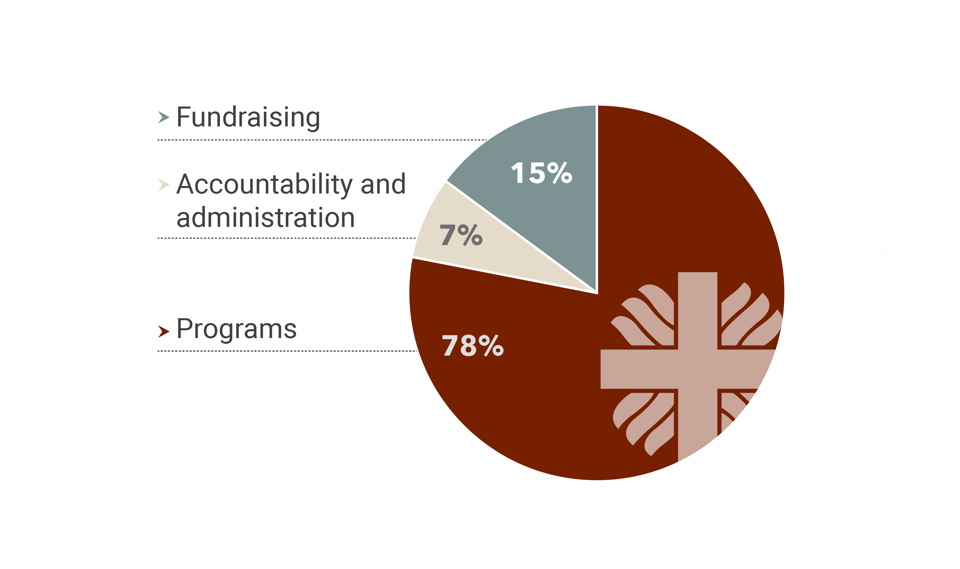Why you can’t donate goods to Caritas Australia
When disasters strike, we get asked one question a lot. Can I donate food, clothes, or other goods to help? The desire to do something more personal than donate money is generous and compassionate, but we must always answer no.
Why don’t we accept donations of goods?
Goods are expensive: money gets tied up in shipping, storage, and other logistics fees. Often these fees need to be covered by the destination country, which has just been hit by a costly disaster.
Goods can overwhelm and hamper response efforts: this happens as resources are diverted to the logistical necessities of handling large amounts of unknown goods. They can also take up valuable space in ports and other facilities, slowing down or even blocking the arrival of vital aid.
Goods rarely reach their intended destination: in any disaster, the priority is always saving lives. The resources and labour needed to unpack, sort, and send large containers of unknown goods is simply not available. This means goods can sit in storage for quite a long time, during which they can deteriorate. If they do deteriorate, or were damaged in transit, or are just unsuitable to local needs, they will be disposed of - often to landfill.
Why do we prefer cash donations?
It’s immediate: when disasters strike, help is needed straight away, and cash donations allow organisations to bring support to vulnerable communities in the immediate hours following an emergency.
It helps the local economy: economies and livelihoods are devastated by disasters. Cash donations mean that goods can be sourced locally, giving a boost to the local economy at a time it is needed most.
It gives people choice: survivors of disasters know their local area and their local community – they know what they need, and they know where to get it. Cash donations allow survivors to make the choices that are best for them, their families, and their communities.
It supports urgent needs: in the face of disaster, vulnerable communities need immediate access to safe, clean drinking water, emergency shelter, support for hygiene and sanitation in crowded camps, medical support, and psychosocial support for traumatised communities. Cash donations help organisations to support with these crucial elements in the hours after disaster strikes.
How can you make sure your donation has maximum impact?
This is a great question. Here are three things you can do:
-
Choose a charity that is involved in the response and relief effort
-
Check if the charity is reputable via the Australian charity register
-
Check if your charity is a signatory to ACFID, the Australian Council for International Development, which means signing onto the ACFID charter and code of conduct.
Here’s one bonus thing you can do: go to the website of your charity and see how they use their funds. All charities must allocate a certain percentage of funds to day-to-day operations, things like fundraising, systems and administration, and staffing – all vital components of an organisation that allows a quick and effective response. Any reputable charity should have this information clearly available for the public to see.
Here’s ours:

When you donate to Caritas Australia, you can be sure of our careful stewardship of your contribution.

















